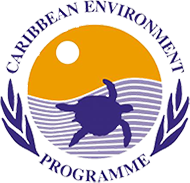During the month of November 2021, the UNEP Cartagena Convention Secretariat hosted two workshops for Non-Contracting Parties to its Protocol Concerning Pollution from Land-Based Sources and Activities (LBS). The objective of the workshops was to assess the level of national progress in the ratification of the LBS Protocol, identify major barriers to ratification and the type of support that could be provided by the Cartagena Convention Secretariat, the LBS Regional Activity Centres (RACs) and Regional Activity Networks (RANs), through ongoing programmes, projects and activities.
These workshops directly supported the Secretariat’s efforts to strengthen the governance framework of the LBS Protocol in the region and increase national awareness about the importance of this legal instrument in addressing marine pollution (Result 2.1 of the ACP MEAs III Programme). One workshop targeted English and Dutch-speaking countries, while the other was held with Spanish-speaking countries in the Wider Caribbean. Both sessions were supported by the Institute of Marine Affairs (IMA) in Trinidad and Tobago and the Centre of Research and Environmental Management of Transport (CIMAB) in Cuba, in their capacity as Regional Activity Centres for the LBS Protocol. Members of the Secretariat’s Regional Activity Network were also in attendance.
A total of 9 Non-Contracting Parties benefitted from the presentations and discussions: Aruba, British Virgin Islands, Curacao, Cuba, Colombia, Guatemala, Mexico, Nicaragua, Venezuela. The sessions were interactive, allowing focal points to share their feedback on discussion questions and seek clarification on issues of concern. Among the barriers to ratification, focal points noted the need for capacity-building to strengthen their monitoring capabilities, a lack of understanding by stakeholders on the economic, social and environmental impacts of pollution, personnel changes at the ministerial level and the restructuring of political priorities. During one of the workshops, participants were able to hear first-hand about the challenges and lessons learnt from Barbados throughout their ratification process. Barbados is the most recent country to ratify the LBS Protocol, having done so in June 2019.
At the end of the sessions, focal points expressed that they had a better understanding of the Protocol and its benefits. They also shared their immediate next steps following the workshop and their willingness to further engage with the Secretariat and LBS Regional Activity Centres to request specific training and support for ratification.
The LBS Protocol of the Cartagena Convention is the only agreement of its kind for the protection of the Caribbean Sea against marine pollution. It consists of a set of procedures developed to respond to the need to protect the marine environment and human health from land-based point and non-point sources of marine pollution. To date, 15 governments in the region have ratified this Protocol.







